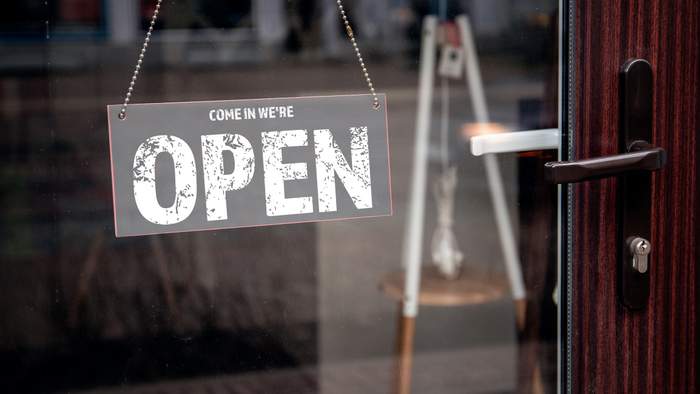
As taprooms closed, the always-creative craft industry responded by popping up online stores, adding local delivery, and setting up “to-go” or “brew-thru” sales. Some even went as far as to drive music-blasting delivery trucks around local neighborhoods, selling beer and cocktails like ice-cream, but better. As we look to a near-future of reopened taprooms, tasting rooms and brewpubs, it’s time to embrace that same creativity and plan for what comes next.
Your guests are going to be very excited to see you, but also cautious and unsure how to behave in your space. It’s up to you to welcome these guests back as you would to your own home—respecting the needs, concerns and fears of each of them, while providing the fun community-based experience they’re looking for. A tall order but we know you’re up for the challenge. Let’s break it down.
Jumpstart the future
Small businesses are uniquely positioned to get a head start. It takes far more time and resources to reopen a large establishment or business than it does to bring back a few key employees to your small local business for the sake of opening your doors.
Rules will loosen in stages, allowing smaller spaces, outdoor venues, and certain business types the opportunity to welcome folks back first. TAKE ADVANTAGE of this moment to give your business that strong first step forward.
Feed the momentum
During the closures, many of you pivoted and started selling to-go or delivery, especially as licensing restrictions relaxed. Keep those channels going for as long as you’re allowed. Opening your taproom doesn’t mean everyone will be ready to come back—some will continue to practice social restrictions for awhile.
Make your product available to everyone on the social distancing spectrum and take advantage of those additional customers and sales channels. Plan to support and staff your to-go and delivery channels for as long as feasible.
Be the community venue
Movie theaters, concert halls, large performance spaces, etc. will face a longer lead time before they’re able to open. Significant overhead, heavy regulations and a need to fill seats to be profitable stand in their way.
However, artists are desperate to get back in front of an audience and patrons are desperate for the arts. Invite local musicians in for connected (but distanced) performances with an intimate crowd, host movies, or put on small theater or spoken word events. Provide the community culture that your customers desperately want.
Take advantage of the benefits of your outdoor space to create easier social distancing and fun. Many of you have this additional space, and as summer approaches, opening this up, even before your indoor space, give your customers yet another opportunity to socialize and connect.
Invite your customers in
Once you’re ready to open back up, shout your invitation from the rooftops. Use social media, promote on your online store, and print on receipts for take-out or delivery. Take every opportunity to tell them you’re open and share any new capacity limits, hours, and safety measures.
It’s also important to invite your customers back through all of your communication channels. Use social media, messages on your online stores, on receipts for take-out or delivery, etc. Also make sure you are communicating to your customers any capacity limits or restricted hours when inviting them back once you open.
When they join you in the taproom, upsell to-go items and promote your loyalty program. They may space out their visits longer than they did pre-COVID. Bridge that gap with to-go items. Close the gap with enticing incentives and promotions to bring them back soon and often.
Make guests feel comfortable
When customers return they’ll come with a wide range of comfort levels. Create a safe space by limiting capacity, preventing crowds and communicating your sanitation practices widely. Train your staff on best practices to make guests comfortable in your space and prepare them to respond to COVID-anxiety-induced issues.
For example, if a guest asks their server to step back, ensure your staff will accommodate regardless of their own personal comfort level. Likewise, empower your staff to make similar requests of customers to respect social distancing.
Now more than ever, we’re responsible for responding to customer concerns with empathy and kindness.
Consider your service model
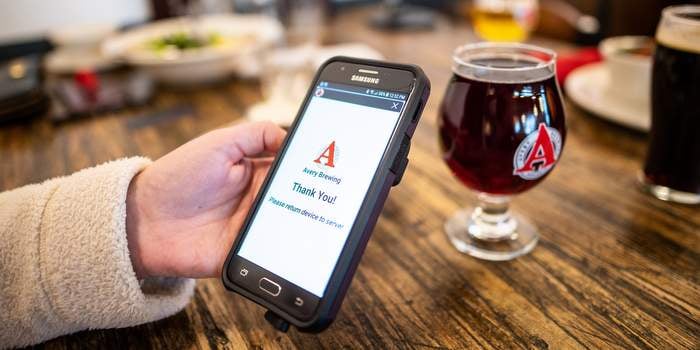
Ask yourself: “Is our service model right for the future?”
Counter service only is the standard service experience in many tasting rooms. However, counter service, if not handled correctly, can lead to crowding and safety issues among your guests. It’s a good time to consider whether a floating service model would better fit today’s needs.
Floating service is defined as mobilizing your staff in front of and behind the bar. Each staff member is empowered to serve any customer in the establishment and perform any necessary tasks: pour beers, take orders, clean tables, process payment. Guests safely remain at tables and movement through your space is limited — preventing crowds and creating appropriate distance between your guests. Floating service has the added benefit of making to-go item upsells more natural and leads to increased sales, without the labor cost of a full service model.
The Arryved platform is super helpful for implementing and supporting this innovative service model.
If you decide to continue with counter service, clearly mark spaces for a line and post distancing reminders to reduce the friction between guests around the bar. And with either model, train your staff on proper protocols for safety and distancing.
Payments and personal safety
Really think through how you’ll handle payment. Your riskiest transaction methods include cash, pens, styluses, customer facing kiosks and shared card readers. To mitigate the risk, limit cash sales, offer “clean” and “dirty” pen jars, and consider a single point of payment that can be well managed and easily sanitized by your staff.
Your safest transaction methods center around online and mobile tools that allow guests to start a tab, order, and pay from their own personal phones. It’s a great option to keep payments 100 percent touch free.
What to watch in the data
Finally, things are going to be changing rapidly and accessing your taproom data is more important than ever. Set daily goals for the taproom with clear points of measurement so you know what is working. Review your sales goals daily and pivot accordingly.
To-go cans aren’t selling, but to-go growlers are? Try putting the cans by the door with a fun sign. One of your team members is upselling way more merchandise than others? Encourage that person to share their tricks with others. It will probably be a few months until we see the taproom sales we’re accustomed to, so use this data to maximize the revenue potential of each guest. If your POS software isn’t able to deliver insightful, real-time data, transitioning to a platform that does could be a make-or-break decision.
Nancy Trigg is president & CGO of Arryved Inc.

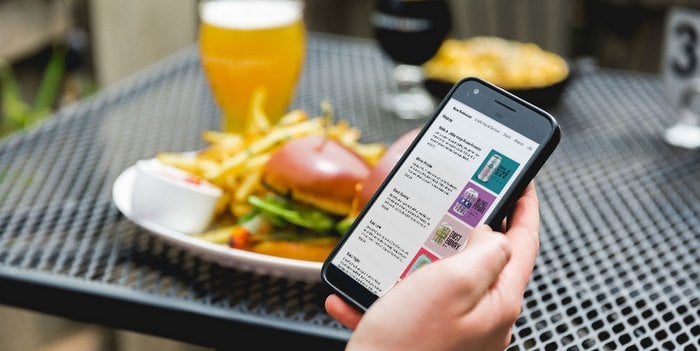
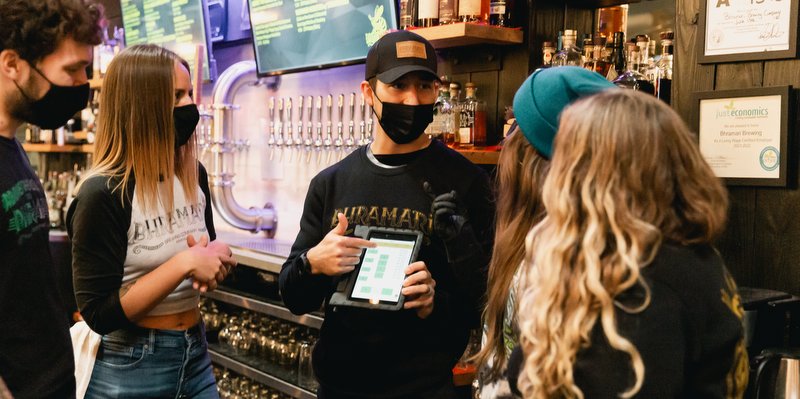
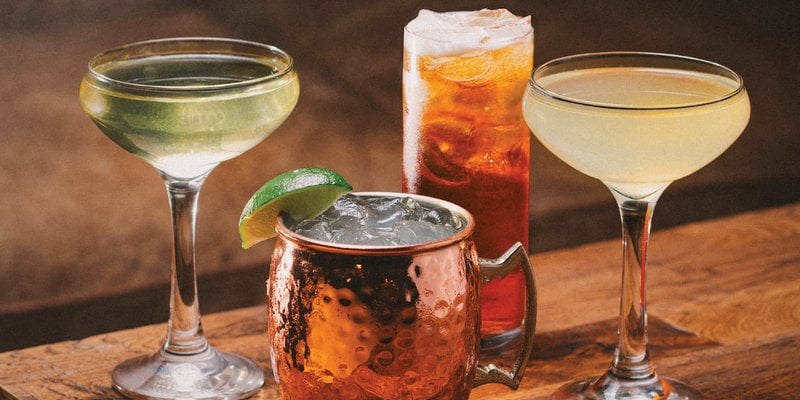
Leave a Reply
You must be logged in to post a comment.